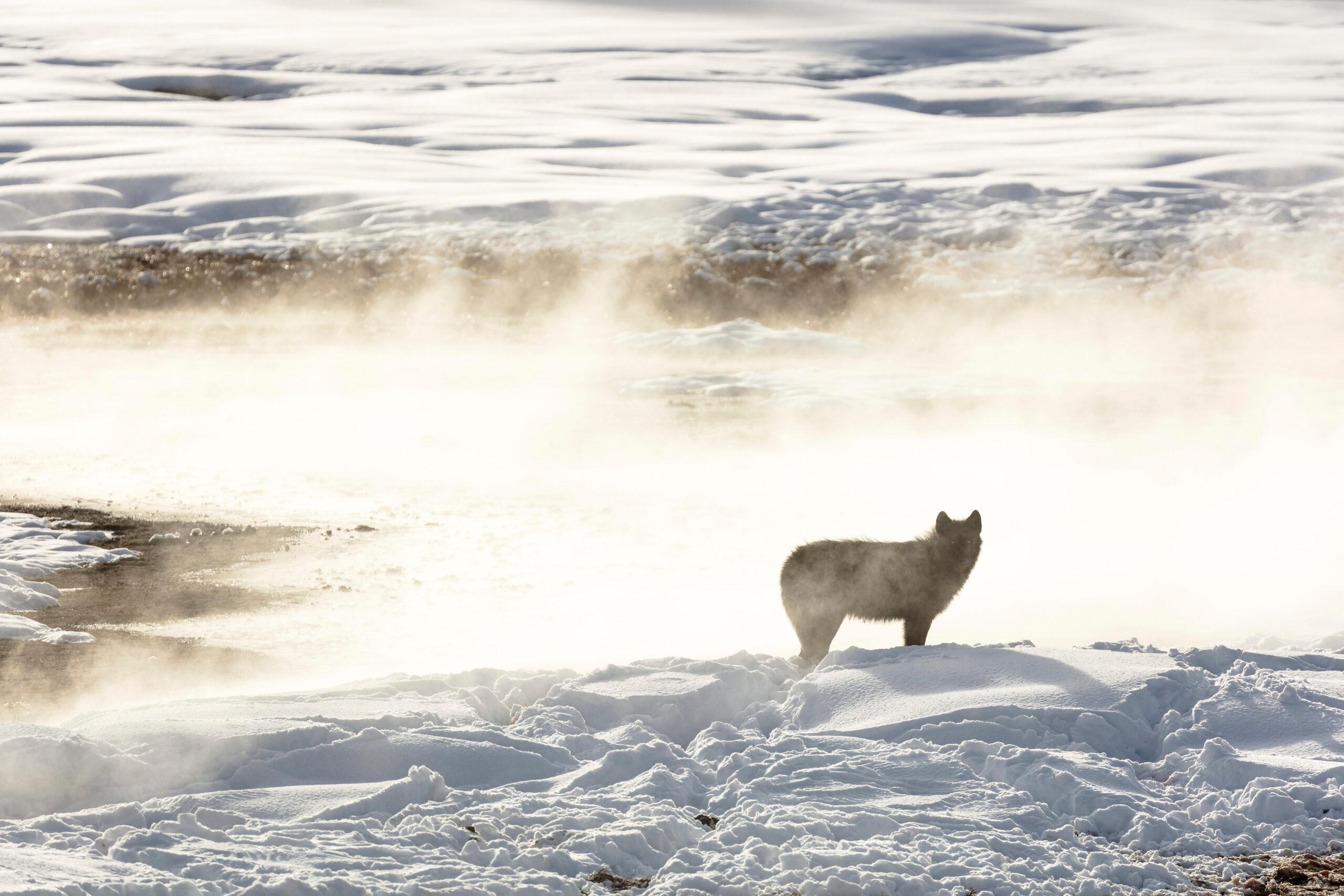
It’s now been nearly three years since Colorado voters narrowly approved a ballot measure calling for the reintroduction of gray wolves.
Since then, state wildlife managers have held numerous hearings on the topic and written a detailed plan to manage the predators. All of those efforts have aimed toward a deadline in the text of the law approved by voters: Dec. 31, 2023.
At an end-of-session press conference on Tuesday, Gov. Jared Polis said he remains committed to that timeline, which is why he signaled he’ll likely block a bipartisan bill approved by lawmakers in the final days of the legislative session. That’s because he worries the proposal could lead to legal complications and delay the state’s voter-mandated reintroduction plan.
“It’s certainly clear where our agencies were,” Polis said when asked about the possibility of a veto. “I don’t think people will be surprised.”
State Rep. Matt Soper, a Delta Republican and a lead sponsor, was frustrated to hear the governor hint at a veto, especially when the bill passed both chambers of the legislature with broad bipartisan support.
“I just find it unbelievable,” Soper said. “He needs to listen to the people’s elected representatives.”
Here’s why lawmakers introduced the bill in the first place
The center of the conflict is the U.S. Endangered Species Act. After a judge relisted wolves as an endangered species last year, it became a federal felony for anyone in Colorado — including state wildlife officers — to harass or kill one of the predators.
Colorado Parks and Wildlife has never intended to release wolves with those strict protections in place. That’s why it applied for a 10(j) permit, which would allow the U.S. Fish and Wildlife Service to designate Colorado’s wolves as an “experimental population.”
Under the exception, the state could likely follow through on planned policies to kill or use certain techniques to scare off certain wolves if they’re a consistent threat to livestock or pets. In recent testimony before the state legislature, Dan Gibbs, the director of the Colorado Department of Natural Resources, said the federal government is on track to issue the permit ahead of the end-of-year deadline.
The rural lawmakers behind the legislation say their bill is meant to hold the state to those promises. If enacted, it would only allow reintroduction to proceed once Colorado secures the permit. The idea won emphatic support from Western Slope ranchers who see lethal management as a necessary option to protect their livelihoods.
“I see this bill as complementary to their efforts to do wolf for introduction correctly. And the majority of the legislature felt the same way,” said state Sen. Dylan Roberts, a Democrat from Steamboat Springs and a lead bill sponsor.
But wolf advocates warn the plan could imperil a tricky process to obtain the federal permit.
Mike Phillips, the director of the Turner Endangered Species Fund and a member of a state working group advising Colorado’s wolf efforts, explained the federal government is now reviewing a number of options in response to Colorado’s application.
One is a “no-action alternative,” which essentially means U.S. Fish and Wildlife Service would allow reintroduction to take place without a 10(j) permit in place. That’s not Colorado’s preferred option, but Phillips warned the proposed legislation would invalidate it altogether and thereby throw a wrench into the mechanics of the evaluation process.
“That ‘no-action’ alternative needs to be viable,” Phillips said. “It can’t be meaningless because it’s the benchmark against which we can compare the consequences of the other alternatives.”
Another point of legal disagreement is the deadline included in the original initiative. In official state discussions around wolf reintroduction, the interpretation has always been wildlife managers must put “paws on the ground” by the end of this year.
But the language in the voter-approved wolf measure is a little more vague. It reads the state must “take the steps necessary to begin reintroductions of gray wolves by December 31, 2023.” The lawmakers behind the bill say Colorado has already taken “the steps necessary” by writing an official plan and applying for a federal permit.
If the disagreement ever reached a courtroom, Phillips said a judge would likely evaluate the intent of voters. Since most official explanations ahead of the election noted the date as the deadline for reintroduction, he thinks a court would quickly toss out the lawmakers’ logic.
There is, however, one point of agreement among opponents and supporters of the legislation: If the federal government issues a permit before the deadline, the entire disagreement could be a moot point.
“If all goes according to plan, then this bill will never be needed,” Roberts said.









